Life and Works of Phoebe Palmer (7 vols.)
Digital Logos Edition
Overview
“It is by strong faith, not feeling that we glorify God,” writes Phoebe Palmer—the mother of the Holiness movement. Permeated with warmth, vivacity, and a zealous love for the Bible, Palmer’s writings offer a wealth of spiritual wisdom, and a window into the nineteenth-century Holiness revival. Explore some of her best works on the doctrine of holiness and immediate sanctification. Throughout her writing, Palmer offers vibrant personal testimony about the joys of this “Christian perfection,” urging other Christians to offer themselves fully to Christ and experience “entire sanctification.”
Study Palmer’s insight into the path to holiness in her popular The Way of Holiness—a narrative of seeking holiness in the mold of Pilgrim’s Progress. See deeper into her life and thought with collections of her correspondence. Examine writings that helped pave the way for other female leaders, reformers, and social advocates such as Catherine Booth, Frances Willard, and Amanda Berry Smith in The Promise of the Father. Palmer responds to resistance against her role as a female evangelist with a passionate defense of permitting women to pray and testify publicly, arguing that the Spirit was given to both men and women. Palmer’s work will interest students of history and theology, providing valuable insight into Christian living and the religious landscape of a rapidly changing America.
In the Logos editions, these volumes are even more valuable, enhanced by cutting-edge research tools. Scripture citations link directly to English translations, and important terms link to dictionaries, encyclopedias, and a wealth of other resources in your digital library. Perform powerful searches to find exactly what you’re looking for. Use the Timeline feature to track important dates and events. With Logos Bible Software, the most efficient and comprehensive research tools are in one place, so you get the most out of your study.
Looking for more? Check out the writings of Catherine Booth.
This title is included in the following collections
You can save when you purchase this product as part of a collection.
Logos 8 Methodist & Wesleyan S...
$349.99$349.99Logos 8 Methodist & Wesleyan G...
$849.99$849.99Logos 9 Methodist & Wesleyan G...
$849.99$849.99Logos 8 Methodist & Wesleyan P...
$1,499.99$1,499.99
- $1,499.99
- $1,499.99
- $2,999.99
- $21,749.99
- $24,999.99

- Offers a foundational text of the nineteenth-century Holiness movement
- Includes personal letters and memoir
- Presents a window into the religious landscape of nineteenth-century America >
- Title: Life and Works of Phoebe Palmer
- Volumes: 7
- Pages: 2,475
- Resource Type: Topical
- Topic: Collected Works
- The Way of Holiness
- Incidental Illustrations of the Economy of Salvation: Its Doctrines and Duties
- Faith and Its Effects: Fragments from My Portfolio
- Entire Devotion to God
- Promise of the Father: A Neglected Speciality of the Last Days
- The Useful Disciple: A Narrative of Mrs. Mary Gardner
- The Life and Letters of Mrs. Phoebe Palmer
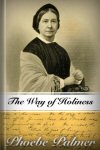
Dive into a foundational text in the Holiness movement. This tale in the mold of Pilgrim’s Progress went through 50 editions in its first two decades of publication. Phoebe Palmer develops an abstract account of the way to salvation through written portraits. As reviewer Rev. L.L. Hamline notes in the preface to the second edition, “[Palmer] has but one aim, namely, to present pictures—Daguerreotype impressions—of her states of mind, from the time she started in the way to seek holiness, until, and after she attained it. The difficulties she encountered—their effect upon her mind—and the manner of her escape are all so represented that the pious reader readily apprehends them.” This classic text offers clear exposition of the doctrine of entire sanctification with a fresh simplicity and creative format.
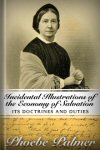
In this text, Phoebe Palmer discusses Christian Holiness, and outlines her ideas on entire sanctification. She draws on the writings of John Wesley to support her views on immediate sanctification, the differences between conversion and entire sanctification, the role of faith, and the place of public testimony in Christian life.
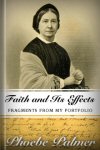
Explore a collection of Phoebe Palmer’s correspondence on the subject of Christian perfection. Gain deeper insight into her personal theological positions, private outlook, and public ministry. Peruse 55 letters written to various individuals and churches, in which Palmer responds to a variety of questions about Holiness theology and entire sanctification.
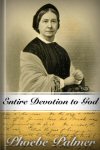
Initially writing to a personal friend, Phoebe Palmer then expanded and published Entire Devotion to God in numerous editions. She encourages and counsels the reader about Christian holiness, maintaining “holiness as the great leading doctrine of the Bible, rather than as a doctrine peculiar to any sect.” She notes that her “simple aim is to bring up with freshness, and describe in scriptural phraseology—‘The way the holy prophets went’—the way that has been trodden by the truly devoted of all ages and of every evangelical sect.” She includes illustrations from various individuals in the ministry and laity as she discusses the call to be Christ-like in Scripture.
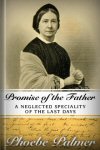
Promise of the Father: A Neglected Speciality of the Last Days
- Author: Phoebe Palmer
- Publisher: Schmul Publishers
- Publication Date: 1859
- Pages: 421
As a female evangelist in the 1800s, Phoebe Palmer encountered resistance from many quarters for having a public ministry and speaking career. In this volume, Palmer defends herself and other women who had been discouraged or forbidden to speak. Arguing that the Spirit was given to both men and women at Pentecost, she looks to Scripture to defend women being able to pray and testify in the church, as well as preach the gospel for the conversion of sinners. She does not argue for the ordination of women, but rather presses that women should not be prevented from preaching and testifying, as she believed this public response to God’s call was a necessity of “entire sanctification.” Phoebe Palmer’s work influenced other female leaders and evangelists, including Frances Willard, Catherine Booth, and Amanda Berry Smith.
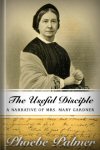
Phoebe Palmer presents a narrative of the life of nineteenth-century widow Mary Gardner, offering her readers a portrait of a contemporary life of holiness, practically lived out. She traces Gardner’s eventful life—marked by many trials—as an example of a faithful disciple, who persevered in faith amidst suffering. “Witness her intense love to God, manifested in her burning zeal to be useful to those around her!” Palmer writes in the preface, noting that she “devoutly [anticipates] that these pages may be helpful toward inspiring minds which, from various disabilities, have seemingly in fruitless endeavor, been grasping after opportunities for usefulness to bring their energies to bear upon such as may be within reach of the present moment.”
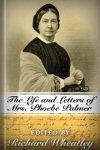
Learn more about the Christian Holiness advocate and nineteenth-century evangelist, Phoebe Palmer, as revealed in her correspondence. Published after Palmer’s death, this volume compiles letters and memoir to present an intimate look into Palmer’s life and thought.
Phoebe Palmer (1807–1874) was a prominent figure in the nineteenth-century Holiness movement in the United States. She was born in New York City to a devout Methodist family. In 1827, she married a homeopathic physician, Walter Palmer. The Palmers became deeply interested in the work of John Wesley, and especially his teaching of “Christian perfection.” In 1837, Phoebe Palmer experienced what she would describe as “entire sanctification,” and she devoted the rest of her life to sharing this message. She developed what came to be known as “altar phraseology”—believing in the immediate availability of sanctification, when one lays all of oneself on “the altar” of Jesus Christ, who sanctifies the offering through faith in a second act of grace.
In 1840, Phoebe Palmer began leading weekly women’s prayer meetings at her home—the Tuesday Meeting for the Promotion of Holiness. These meetings eventually included men, and by the 1850s, ministers, bishops, and educators of many Protestant denominations began to attend. Prayer meetings patterned after these Tuesday Meetings sprang up throughout the surrounding areas, and by 1886, around 200 such meetings were happening across the United States and abroad. Phoebe and Walter Palmer became itinerant preachers, speaking at churches, conferences, and camp meetings across the country and in the UK. Phoebe also wrote several popular books, undertaking a writing and speaking ministry that was highly unusual for a woman at the time. She left an enduring legacy, playing a significant role in helping to spread and renew interest in the concept of Christian holiness across the US, Canada, UK and other parts of the world.